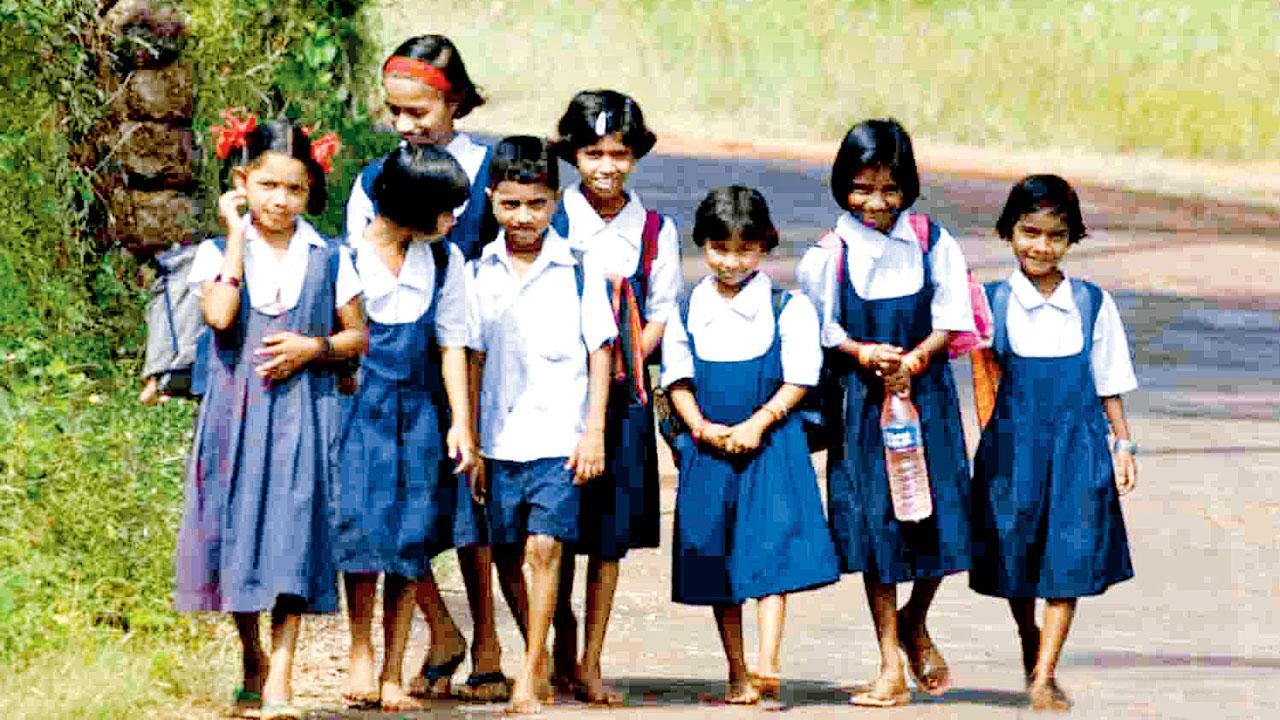Protest grows as teachers, activists challenge government’s decision

Teachers claim that this decision will affect a total of 1,85,467 students and 29,707 teachers. Representation pic
Teachers' organisations state-wide have issued a strong warning, vowing to intensify their protest efforts if the state government proceeds with its proposed cluster school policy. Various teacher unions and organisations dedicated to teachers' welfare have unequivocally voiced their opposition.
The primary aim of the Maharashtra government is to consolidate primary and secondary schools with enrolments of 20 students or fewer and merge them into one cluster school.. According to data provided by the state government, there are 14,783 schools in the state with enrolments of 20 students or fewer. The state government's decision is facing strong opposition from educational activists and teachers who believe it will result in teacher unemployment and student dropouts. Students may be deterred by the financial and safety concerns associated with long commutes to school.
Mahendra Ganuple, the state spokesperson of the Maharashtra School Principals' Association, stated, "The state's assumption that low enrolment leads to poor school quality or inadequate socialisation opportunities for students is unsatisfactory.." Even after highlighting the errors and inconsistencies in the decision, if the government proceeds with the cluster school plan, it will face adverse consequences in the future.
Vijay Kombey, the state president of the Maharashtra State Primary Teachers Committee, said, "As educators, we constitute a significant stakeholder group, and it's disheartening that the state government consistently overlooks our perspective in such decisions. I have publicly urged the state government to substantiate its claims, particularly the assertion in the September 21 circular that students in these schools lack socialisation opportunities."
Last week, a meeting was organised by Shikshan Vikas Manch to discuss the issue with representatives of education officials, educational activists, and organisations supporting teachers at Yashwantrao Chavan Auditorium in Nariman Point. Present at the meeting were Ulhas Narad, deputy director of education in the Nagpur Division, Sandeep Sangwe, deputy director of the Mumbai Division, and two officials from Panshet Pune (former and current), where the cluster school model was developed.
Well-known educationist Basanti Roy pointed out, “Though the government claims to have planned cluster schools with reference to the new education policy, the plan is actually inconsistent with the policy. It has been mentioned in the policy that dropouts will increase if schools are closed.'"
Ganpule added, "We have studied the Panshet model cluster school. The building was developed by a private entity, and transport is provided by a private player, too. Isn't this the privatisation of government education? Also, what assurance is there that the government can provide similar facilities? The government says they will provide ST buses. ST buses do not operate in remote areas. How feasible is this?”
 Subscribe today by clicking the link and stay updated with the latest news!" Click here!
Subscribe today by clicking the link and stay updated with the latest news!" Click here!










